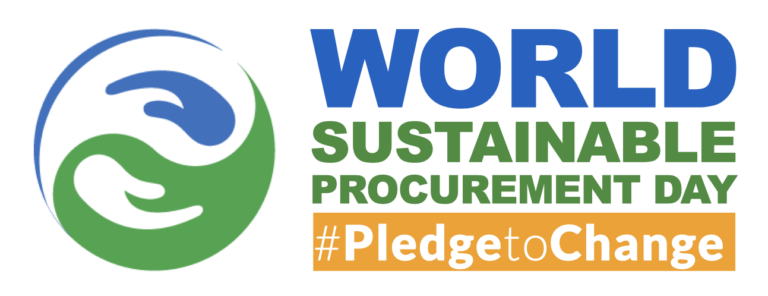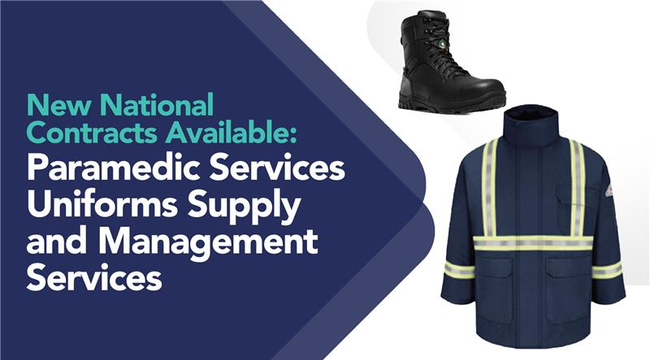 The Sustainable Procurement Pledge recently hosted the second annual World Sustainable Procurement Day Conference, featuring more than 70 speakers in 24 one-hour sessions across four international regions.
The Sustainable Procurement Pledge recently hosted the second annual World Sustainable Procurement Day Conference, featuring more than 70 speakers in 24 one-hour sessions across four international regions.
Below are some highlights from three sessions:



Key Takeaways
- Measurement and more importantly, the reduction of supply chain emissions is arguably the most critical and complex challenge that procurement faces in the next 7 years.
- Presenters noted the commercial marketplace for tools which procurement professionals can use to track and reduce Scope 3 emissions is crowded and confusing to navigate, making it critical to dedicate sufficient time and resources to research products to determine their fit and effectiveness.
- Organizations are advised not to start from scratch and develop their own Scope 3 tools – within the cluttered market, there are many good tools available to help organizations better understand and measure the environmental impact of their supply chains.
- The session focused on practical, free tools to reduce Scope 3 emissions, which stem from activities from assets not owned or controlled by the reporting organization but which indirectly affect its value chain.
- Setting climate action targets will help you prioritize where to dedicate your resources and efforts.
- Panelists highlighted a number of tools to tackle Scope 3 emissions including Scope 3 Maturity Benchmark, Transform to Net Zero’s Buyer-Supplier-Engagement to Reduce Scope 3 Emissions and a number of training resources offered by SME Climate Hub.
Session speakers included: - Jamie Ganderton, Vice President, Proxima Group, London
- Miguel Cossio, Procurement Research Director, Supply Chain, Gartner, Boston
- Erin Leitheiser, Associate Director, Nature & Climate, BSR (Business for Social Responsibility), Copenhagen
- Louise Rehbinder, Director, Exponential Roadmap Initiative, Stockholm
- Oliver Hurrey, Chair & Champions Lead/ Chair, Sustainable Procurement Pledge; Scope 3 Peer Group; Founder, Galvanised, Maidenhead
- The pharmaceutical industry is leading in collaboration towards hitting sustainability targets.
- ESG principles are increasingly being incorporated into the pharmaceutical industry and sustainability is becoming front and centre.
- Every pharma company has net-zero or carbon neutral targets.
- The presenters introduced a few programs and initiatives to know about including:
- The Pharmaceutical Supply Chain Initiative - they have just released a decarbonization pathway which includes a maturity model for decarbonization to see where you are in the process.
- Energize - Supply partners in the pharma industry can get access to renewable energy for pharmaceutical supply chains.
Session speakers included: - Zelia Kranich, Senior Product Stewardship and Sustainability Manager, Perrigo/SPP Pharma Co-Chair
- Torsten Held, Global Category Lead Energy & Utilities, Bayer
- Alyssa Caddle, Director, Procurement Sustainability, Thermo Fisher Scientific
- Oliver Hurrey, Chair and Champions Lead & Chair, Sustainable Procurement Pledge; Founder, Galvanised
- Fred Turco, Global and Sustainable Sourcing Lead, Pfizer/SPP Pharma Co-Chair
- The Sustainable Procurement Pledge (SPP) is launching its 2023 Pulse Survey to assess the state of sustainable procurement practices.
- You can’t do anything without engaging your suppliers. Sustainability hasn’t been part of what suppliers focus on or do and suppliers are being asked by multiple customers to do different things (different platforms and data requirements etc.) and sometimes suppliers are unwilling or unable to.
- There are three steps to take to engage suppliers:
- Prioritize – focus efforts because not all suppliers are created equal. You must identify what suppliers are most relevant to your sustainability goals. You can create a differentiated approach and segment suppliers by suppliers’ maturity and your ability to influence them.
- Incentivize – This means driving your suppliers to action once you tailor your approach. The suppliers must be motivated (communicate why sustainability matters, how it affects their business, and what’s in it for them as suppliers).
- Make It Easy – This means helping them help you. Be flexible.
- As you incentivize suppliers, you need to embed sustainability into decision-making.
- Sustainability goals should be equally important to procurement and suppliers.
- Multiple digital tools are available to support your sustainability strategy including supplier sustainability applications, risk data sources and monitoring, speciality applications, and worker engagement tools.
- Only those that can successfully engage with their suppliers will be able to deliver on their sustainability goals.
Session speakers included: - Oliver Hurrey, Chair and Champions Lead & Chair, Sustainable Procurement Pledge; Founder, Galvanised
- Miguel Cossio, Research Director, Gartner
You can view the full recordings below:
Scope 3 Toolkit for Procurement
Pharmaceutical Decarbonization Strategy
Three Steps to Bring Your Suppliers Along Your Sustainability Journey
 The Sustainable Procurement Pledge recently hosted the second annual World Sustainable Procurement Day Conference, featuring more than 70 speakers in 24 one-hour sessions across four international regions.
The Sustainable Procurement Pledge recently hosted the second annual World Sustainable Procurement Day Conference, featuring more than 70 speakers in 24 one-hour sessions across four international regions. 




